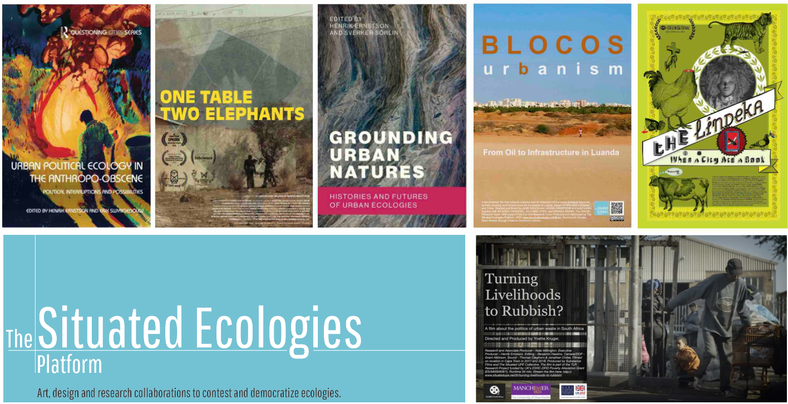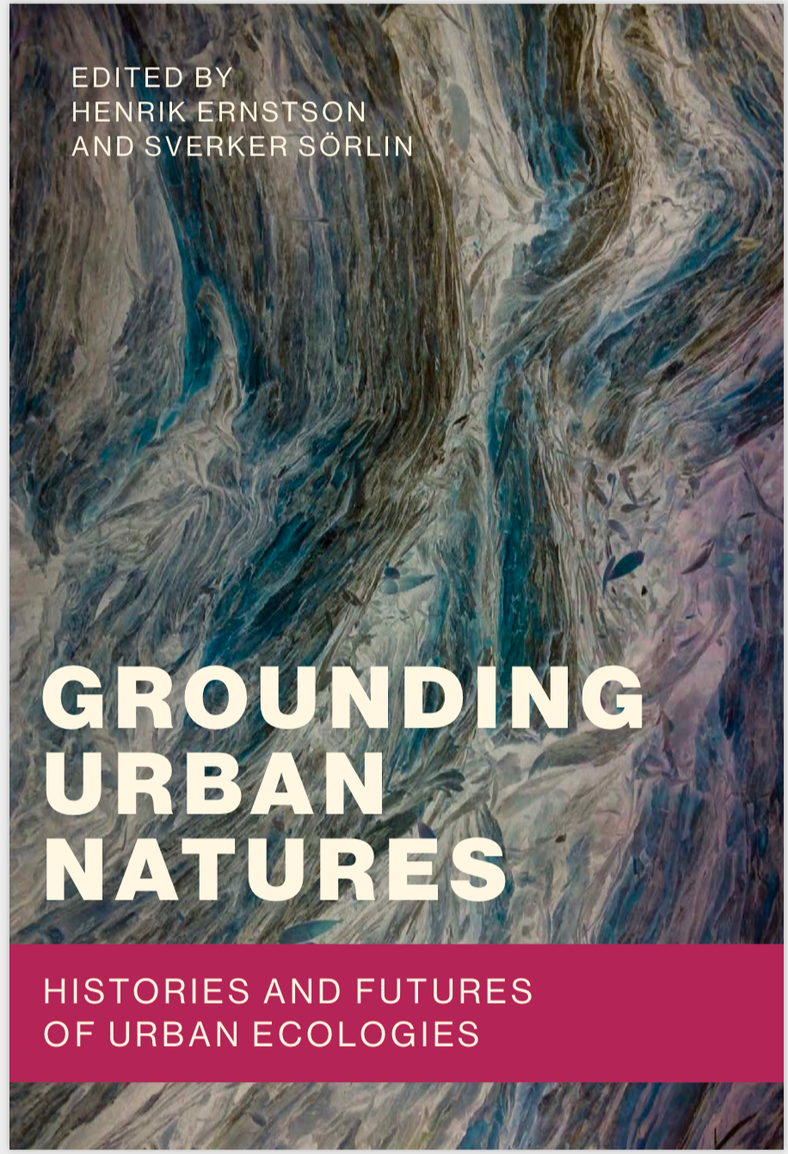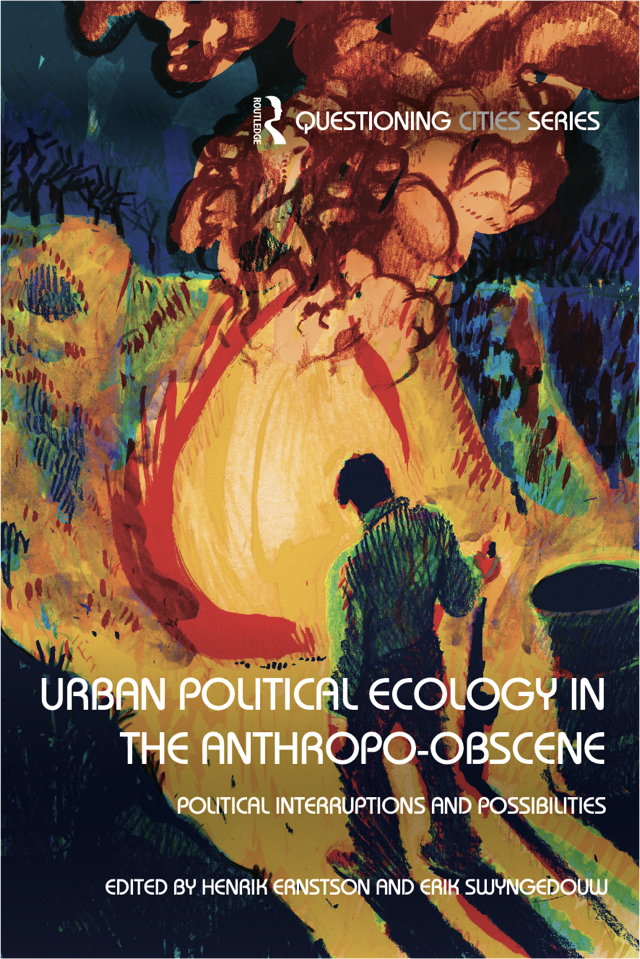Henrik Ernstson
Professor
Details
Researcher
About me
Henrik Ernstson is a human geographer and political ecologist and Professor in Sustainable Urban Development and Docent in Political Ecology at KTH Royal Institute of Technology in Stockholm. Before arriving at KTH he was Lecturer in Human Geography at The University of Manchester, UK, and for ten years researcher and later Lecturer in Urban Studies at the African Centre for Cities at the University of Cape Town. Combining critical social science with his background in systems ecology and natural resource management, he has developed interdisciplinary research groups and supervised more than fifteen postdocs and PhD students at four universities. He explores the confluence of urban and environmental issues and uses historical, geographical, participatory and film-based approaches to develop knowledge on how social structures of race, gender, and class, create barriers to infrastructure, shapes knowledge production, and how political claims and social movements can emerge to contest and open for more just and sustainble ways of living. His studies has spanned the politics of biodiversity in Cape Town, informal and heterogenous infrastructure in Kampala, how oil extraction conditions housing and infrastructure in Luanda, and how port- and water infrastructure changes social and ecological dynamics in New Orleans. At KTH, he and his students integrate postcolonial, decolonial, feminist, and Marxist theories with case studies to examine uneven development and modes of urbanization with a special focus on the global South as well as industrial capital's effects on environments and societies, highlighting resistance and pathways for socio-ecological justice, equality, and international solidarity. He takes great pride in being a scholar that combines teaching with research and was nominated to the Best Teacher Award at KTH by the The Student Union in 2024.
Ernstson's contribution to Urban Political Ecology and Urban Studies includes two edited volumes—Grounding Urban Natures (2019, OpenAccess), which won the MIT Press Library Award, and Urban Political Ecology in the Anthropo-obscene (2019, Routledge)—and two innovative and collaborative ethnographic films filmed in Cape Town and eThekwini-Durban and screened at film festivals—One Table Two Elephants (2018, CPH:DOX Copenhagen) and The Lindeka: When a City Ate a Book (2023, SVA AAA Toronto). His studies have been published in leading journals, including Antipode, Environment and Planning A/E,Urban Geography, International Journal of Urban and Regional Studies (IJURR), Theory Culture and Society, amongst others. With co-authors he was awarded IJURR Best Article Award in 2023 and Urban Studies Best Article Award in 2018. For more about his research, films, publications, PhD courses and meetings he has organized, see The Situated Ecologies Platform which he founded and co-directs.
He currently leads a study on the political ecology of dredgingwith studies of harbour expansions in New Orleans, Savannha, Hamburg and Luleå. The project views dredging as an historically created world-making force, which over historical time has pre-figured industrial expansion by moving coastal sediments, shaping coastlines, building canals and harbours, to facilitate European colonization in the late 19th century, offshore oil extraction in the 20th century, to today's wind-based off-shore green energy transition. He is also developing research onthe political ecology of the low-emission energy transition, which, with its central demands for rapidly reducing greenhouse gases, leads, among other things, to an intensification of mining and expansion of extractive and logistical infrastructure with effects on society and the environment with collaborations in Chile, Kenya, South Africa, and Sweden.
Student Consultation Hours — all students are welcome (times for 2025, to be posted here.)(If you cannot get into the corridor, please call my office phone, see KTH web. I’m also opening my zoom but always prioritising students coming to the office; for my zoom address, check with fellow students).
Writing your Master thesis: Visit my resource page, which provides instructions and a video to take the first steps to develop a two-page research proposal.
 Current position and academic career:Henrik Ernstson is a human geographer and political ecologist and Professor in Sustainable Urban Development and Docent in Political Ecology at KTH Royal Institute of Technology in Stockholm. He is Honorary Senior Research Scholar in Human Geography at The University of Manchester, UK, where he previously worked as Lecturer. He has been Honorary Associate Professor in Urban Studies at the African Centre for Cities at the University of Cape Town, where he lived and worked for almost a decade. He was a postdoctoral fellow at Stanford University in California and has worked as a researcher at KTH's Environmental Humanities Lab and the Department of Environmental History. He received his PhD in Natural Resource Management and Systems Ecology from Stockholm University and holds a Master of Science in Applied Physics from Linköping University.
Current position and academic career:Henrik Ernstson is a human geographer and political ecologist and Professor in Sustainable Urban Development and Docent in Political Ecology at KTH Royal Institute of Technology in Stockholm. He is Honorary Senior Research Scholar in Human Geography at The University of Manchester, UK, where he previously worked as Lecturer. He has been Honorary Associate Professor in Urban Studies at the African Centre for Cities at the University of Cape Town, where he lived and worked for almost a decade. He was a postdoctoral fellow at Stanford University in California and has worked as a researcher at KTH's Environmental Humanities Lab and the Department of Environmental History. He received his PhD in Natural Resource Management and Systems Ecology from Stockholm University and holds a Master of Science in Applied Physics from Linköping University.
Publications and scholarly networks
Ernstson has published 50 peer-reviewed journal articles and chapters in leading journals, two major books that spans several of his interests, and two ethnographic films and several reserach-based videos.
Several of Ernstson's publications have become central in the broader urban environmental studies, including articles with colleagues on Situated Urban Political Ecology in Antipode (2014), heterogenous infrastructure in Urban Studies, which won the Best Article Award (2018), the performativity of "the political" in relation to global warming and the so called Anthropocene in Theory, Culture and Society (2019), environmental justice and ecosystem services in Landscape and Urban Planning (2013), urban transitions in Ambio (2010), and the use of network analysis in natural resource management in Ecology & Society (2006). In 2023 he and his colleagues were awarded the Best Article Award in the prestigous International Journal of Urban and Regional Research (IJURR) for their analysis of "petro-urbanism," how oil becomes housing and infrastructure in Luanda, Angola.
Ernstson has extensive international collaborations with co-workers, practitioners, and urban artists in South Africa, Uganda, Nairobi, Angola, UK, Italy, USA and Sweden and he has led various interdisciplinary research groups with studies in Cape Town, New Orleans, Stockholm, Kampala and Luanda. Ernstson is one the founders of The Situated Ecologies Platform in 2010, which he co-directs with Jacob von Heland and Joshua Lewis and that explores the spaces between art, science and environmental politics. He is the co-founder of the Situated Urban Political Ecology Collective (#SituatedUPE) with Mary Lawhon and Jonathan Silver, which has gathered junior and senior scholars interested in the politics of the urbanization of nature drawing on urban political ecology and postcolonial studies.
Books and ethnographic film making
Ernstson has consolidated his collaborative situated urban political ecology agenda across books and ethnographic film making.
Grounding Urban Natures: Histories and Futures of Urban Ecologies (MIT Press 2019, edited with Sverker Sörlin) won the MIT Press Library Award and published #OpenAccess. The book invites the reader to think with richly textured case studies by leading scholars with long experience of working in these cities and places. Urban environmental politics emerges from the textured case studies to theorise and understand urban socioenvironmental conflicts across a range of contexts, from Delhi, Yixing, Lagos, San Francisco, New Orleans, Berlin, and Cape Town, demonstrating and analysing the great variability under which the world is urbanizing. It also demonstrates the range of methods used by urban environmental scholars, from archival research, observation, ethnography and interviewing—and critical reading of landscapes and texts. The chapters are written in plain English where jargon has been kept to a minimum providing a book for teaching undergraduate and postgraduate students. Authors include leading thinkers from anthropology, environmental history, human geography, planning and sociology, including Amita Baviskar, Anne Whiston Spirne, Richard Walker, James P. Evans, Lindsay Sawyer, Joshua Lewis, Lance van Sittert and several others.

Urban Political Ecology in the Anthropo-Obscene: Interruptions and Possibilities (Routledge 2019, edited with Erik Swyngedouw) argues for combining environmental thought much more explicitly with political and radical democratic theory in order to face serious social, ecological and political challenges. Thirteen chapters from leading environmental and political thinkers, ranging from Roger Keil, Jodi Dean, Richard Walker, Malini Ranganathan, Garth Myers, Jonathan Silver, Andy Merrifield, Marco Armiero, Sapana Doshi, Andrés Henao Castro, Maria Kaika and several others. The book is jam-packed with crucial theory on how to re-politicize the environment. Giorgos Kallis, Professor at the Autonomous University of Barcelona, said of the book: "What can be done? This book is a must-read for activists, scholars and scholar-activists who struggle for a better and more equal world." The book is highly recommended for higher-seminar readings among postgraduate and PhD courses.

With my colleage Jacob von Heland, we have released two cinematic ethnography films in 2018 and 2023.
The film One Table Two Elephants (CPH:DOX 2018, 84 minutes) deals with race, nature and knowledge politics in the postcolonial city. The film is based on long-term ethnographic work in Cape Town on ways of knowing urban ecologies and developed further with collaborative film making. The film has been nominated to several prizes and screened at film festivals in Copenhagen, Cape Town, Tirana, Nijmegen and Stockholm, including nominated tothe Nordic Dox Award at CPH:DOX, Copenhagen International Documentary Film Festival in March 2018 and nominated toBest Documentary Feature with African Premiere at Cape Town International Film Festival (CTIF&MF) in October 2018. The film is used in teaching at universities in England, USA, Australia, Sweden, and South Africa. We have created a teaching resoure at our lab groupThe Situated Ecologies Platform.
The second film,The Lindeka: When a City Ate a Book (66 min, 2023, SVA-AAA Toronto) is a cinematic ethnographic film on property, pollution, and difference in the postcolonial city that was filmed in eThekwini-Durban. It had its premiere at the Society for Visual Anhtropology at the American Anthropology Association Conference in Toronto in November 2023.
Ernstson has also released several shorter films from his research. One on the politics of waste management in Cape Town called Turning Livelihoods to Rubbish?, which has been used by civil society organisations in South Africa. Another shorter film traces the production of large-scale infrastructure and injustices in Angola's capital called Blocos Urbanism: From Oil to Infrastructure in Luanda, which received a special mentioning by IJURR when the article with the same name was selected as Best Article in 2023.
Courses
Degree Project in Industrial Ecology, Second Cycle (AL227X), examiner
Degree Project in Strategies for Sustainable Development, Second Cycle (AL250X), examiner
Global Development and Political Ecology (AL2121), teacher, course responsible, examiner
Methods in Sustainability Science (FAL3512), teacher
Sustainable Development in theory and practise (AL2113), teacher
Sustainable Planning and Design (AG2150), examiner, teacher, course responsible